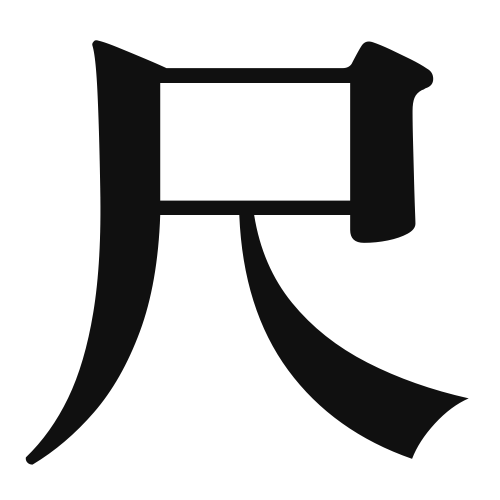1. Overview of Meaning
The kanji “尺” (shaku) primarily means “shaku,” a traditional Japanese unit of measurement equivalent to approximately 30.3 centimeters. It can also refer to a ruler or measuring stick.
2. Formation and Radical
Formation of the Kanji: The kanji “尺” is a pictogram that originally depicted a measuring tool. It is classified as a pictographic character because it visually represents the concept of measurement.
Radical: The radical for “尺” is also “尺,” which relates to measurement and length.
3. Examples of Usage
Common Words and Phrases:
- 尺貫法 (shakkanhō) – the traditional Japanese system of measurement.
- 尺八 (shakuhachi) – a traditional Japanese bamboo flute, which is approximately 1.8 shaku long.
Example Sentences in Daily Conversation:
- このテーブルの長さは2尺です。 (The length of this table is 2 shaku.)
- 尺を使って、正確に測ってください。 (Please use the ruler to measure accurately.)
4. Synonyms and Antonyms
Similar Kanji:
- メートル (mētoru) – meter, a modern unit of measurement that is longer than shaku.
- 寸 (sun) – another traditional unit of measurement, smaller than shaku.
Antonyms:
- 無 (mu) – meaning “none” or “without,” which contrasts with the concept of measurement.
5. Cultural and Historical Background
Relation to Japanese Culture: The shaku has been used in Japan for centuries and is deeply rooted in traditional practices, including architecture and crafts.
Proverbs and Idioms:
- 尺八の音は心に響く (The sound of the shakuhachi resonates in the heart) – emphasizing the emotional impact of music.
